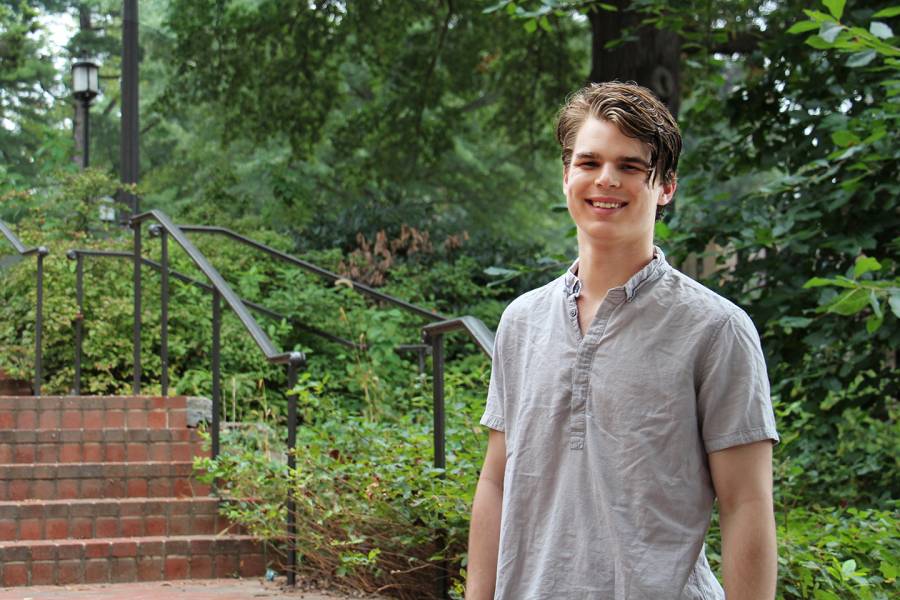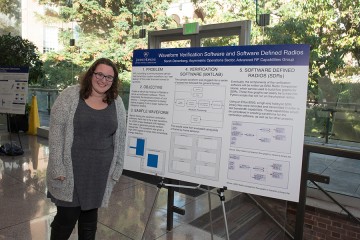Bijan Varjavand is as enthusiastic about his summer at the Johns Hopkins University Applied Physics Laboratory as many students are about spending sunny weeks at the beach or backpacking through Europe.
"It was an incredible experience," said the senior, who is double majoring in materials science and engineering and applied mathematics and statistics at the university's Whiting School of Engineering. "A perfect blend of experience in research and industry."
Varjavand joined APL as part of the highly competitive and prestigious Research Internships in Science and Engineering program, known as RISE@APL, which gives undergraduate and graduate students the opportunity to spend the summer conducting research—and being paid to do so—under the guidance of APL mentors.
Since the program's inception in 2014, RISE scholars have worked on projects including unmanned secure mobile communications and sensor systems for prosthetic limbs, neural networks, and more. Varjavand was immersed in a project developing deep learning for object detection, such as that used in autonomous vehicles or smart video surveillance.
"We want to teach computers how to analyze an image the way a person can," he says.
He will be one of a handful of RISE students who will talk about their projects and experiences at this year's RISE@APL information session, which will take place from 4 to 6 p.m. Wednesday in the Glass Pavilion. At the annual event, students interested in learning more about the program can browse posters, talk to RISE scholars, and hear from Whiting School Dean Ed Schlesinger and Jerry Krill, assistant director of science and technology and chief technology officer for APL.
"I would definitely encourage engineering students to apply to the program, because I got so much out of it," Varjavand said. "One of the best things about it was the support and positive mentorship I got from my research group, including my supervisor. They accepted me as a fellow professional but also always pushed me to improve."
Varjavand's group focused on artificial intelligence, using cutting-edge techniques to make deep learning models more efficient.
"The project is super math-dense," he said. "It's an area that I'm extremely interested in, both technically and philosophically. The opportunity to spend last summer working in this area was invaluable."
Schlesinger agrees.
"RISE@APL presents our students with a tremendous opportunity to work with mentors from one of the nation's premier engineering research and development centers on the most advanced projects," he said. "The program illustrates our deep commitment to integrating research and hands-on experiences into engineering education."
Applications for the next cohort of RISE@APL interns are open now through March 31, 2019.
Posted in Science+Technology, Student Life
Tagged applied physics laboratory









